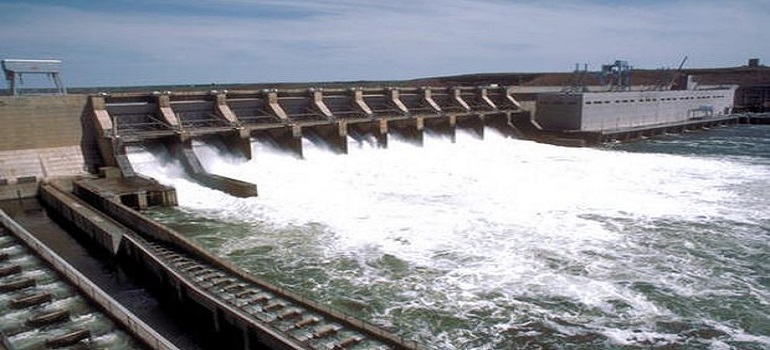
Nepal has cancelled a major deal with a state-owned Chinese company to develop a 1,200 MW hydroelectric plant, the biggest hydropower project in the landlocked country facing acute energy crisis.
The agreement for the USD 2.5 billion Budhi Gandaki Hydroelectric Project, which could have nearly doubled Nepal’s current hydropower production, was signed in June.
A Cabinet meeting held yesterday revoked the deal sealed with the Chinese company as per the “instructions issued by parliamentary committees”, Deputy Prime Minister and Energy Minister Kamal Thapa posted on Twitter.
Thapa said the agreement was signed “illegally and haphazardly”, the Kathmandu Post reported.
The government will soon announce the policy, work plan and procedure for constructing such a project having national priority, he said.
Nepal’s Ministry of Energy had on June 4 signed the memorandum of understanding (MoU) with China Gezhouba Group Corporation (CGGC) for the project located in Gorkha and Dhading districts.
In June, the then energy minister Janardan Sharma and CGGC president Lv Zexiang had signed the MoU to construct the project under the engineering, procurement, construction and finance (EPCF) model. The pact was made in the presence of the then Nepal prime minister Prachanda and Chinese Ambassador to Nepal Yu Hong.
The MoU had given one year’s period to the Chinese developer to conduct assessment of the hydropower project on the Budhi Gandaki river and arrange necessary funds for its development.
The project was touted as a key project to resolve the perennial power crisis in the country.
At the time of the signing the MoU, the Chinese company had agreed to arrange soft commercial loans from the country’s financial institutions for constructing the project under terms and conditions acceptable to the government of Nepal.
At that time the Nepal government had said a final agreement to hand over the contract would be signed if the Chinese company’s financial proposal was sound.
But after around four months of the MoU signing, a joint meeting of the Agriculture and Water Resources Committee and Finance Committee of Parliament directed the government to scrap the agreement stating the decision to hand over the project to the Chinese company was against the country’s legal provisions and breached the Public Procurement Act.
It was learnt that the government had handed over the contract of the biggest reservoir project to the Chinese company without initiating a competitive bidding process.
The Nepal government has been raising infrastructure tax of Rs 5 from sales of every litre of petrol, diesel and aviation fuel to collect funds to build the project.
Nepal’s hydropower potential has been estimated to be around 84,000 MW, of which 43,000 MW has been identified as economically viable. Currently, Nepal’s installed hydropower capacity is just 753 MW, according to the International Hydropower Association (IHA).
In February 2016, the Nepal government had declared 2016 26 as the ‘national energy crisis reduction and electricity development decade’ with ambitious targets to end the current power shortages within three years and to spearhead further development in the hydropower sector, the UK-based IHA said.
At present the total supply of electricity to Nepal from India is about 400 MW.
Source: PTI

